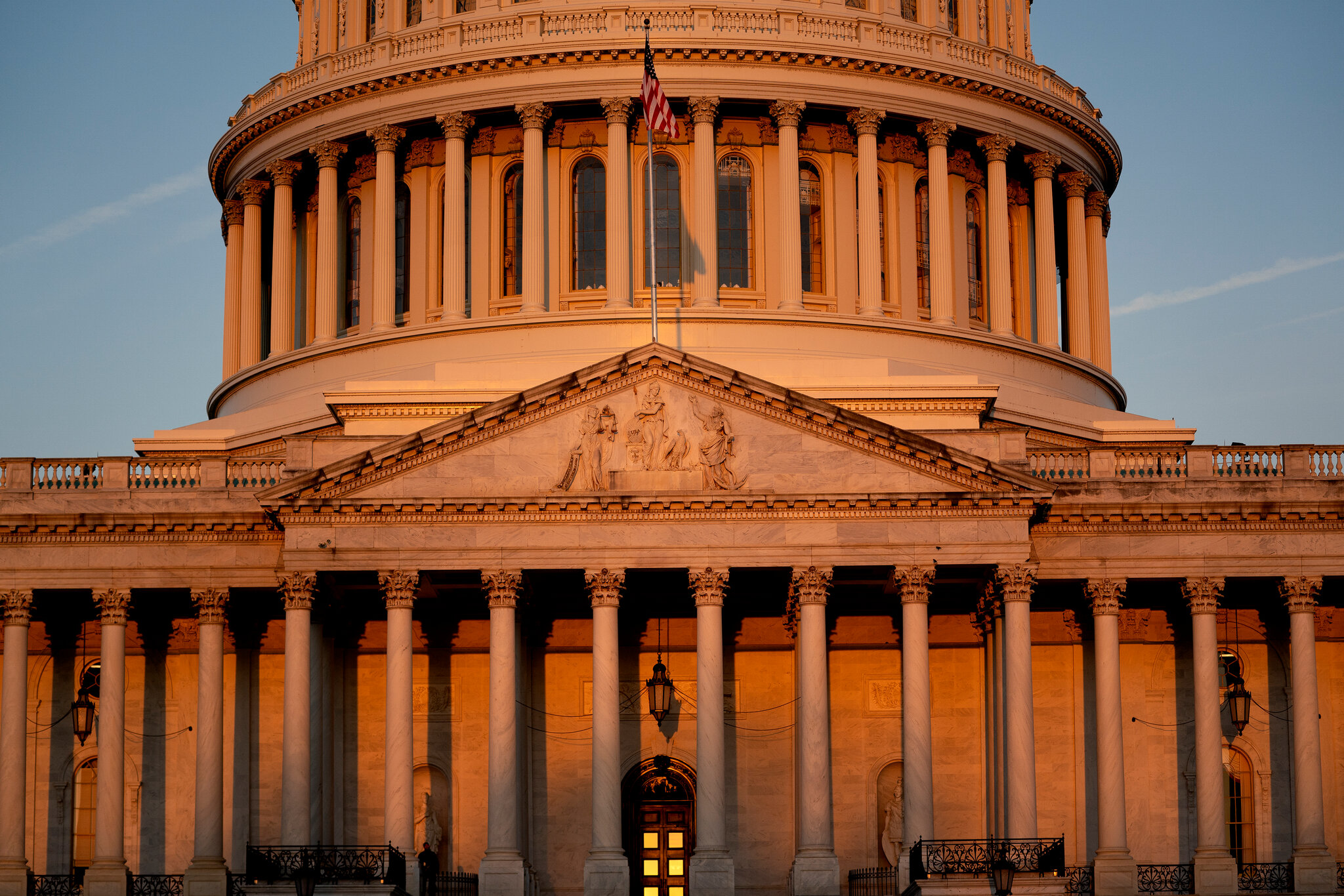From pirates to kingpins, the strange legal history of civil forfeiture
As with most good tales, this one starts with pirates. Or rather, privateers, who are basically pirates but with less killing.
From America’s earliest years to the modern day, the government has taken money and property from citizens to pay its bills.
It began with pirates and privateers, morphed to go after moonshiners and later Mafia dons, and now targets the Land Rovers of small-time drug dealers.
Police agencies in South Carolina use the controversial practice to take money and property from its citizens — outside the criminal law and regardless of arrest.
Forfeiture remains an important funding source to boost police budgets, but many of the old reasons for forfeiture no longer apply, said Louis Rulli, a University of Pennsylvania professor and expert in forfeiture.
The tactics once used against organized crime leaders and drug kingpins now most often target low-level drug offenders who carry relatively small amounts of cash.
Forfeiture laws once again need reforms to go after the bad guys, not ordinary citizens, Rulli said.
How did we get here?
It begins on the high seas in a time before the Revolution.
Aye, matey
The history of forfeiture is a critical, often ignored, part of America’s founding.
As with most good tales, this one starts with pirates. Or rather, privateers, who are basically pirates but with less killing. And they carried letters from the government giving them legal authority to seize cargo and ships.
The British government demanded, with the Navigation Act of 1660, that virtually everything shipped from the New World had to go to Britain and anything coming to the colonies had to first go through Britain. All of it taxed for the crown.
SUPPORT: Local reporting by subscribing to The News
US frigate Delaware capturing the French privateer Croyable off Egg Harbor Township, New Jersey, 1798.
US frigate Delaware capturing the French privateer Croyable off Egg Harbor Township, New Jersey, 1798.
NAVAL HISTORY AND HERITAGE COMMAND
Ship it to or from France, and British Royal Navy officers or British privateers could seize the cargo and the ship. They could even seize the horse and buggy used to move it off the docks.
British authorities expected the colonists to do the same, but the colonial juries wouldn’t convict people, and the crown lost money. So it moved the legal system into one supervised by British admirals.
Taxation without representation. That system, the template for today’s civil forfeiture, was once a spark for revolution.
Privateers were then dispatched to find smuggling ships, and during wartime (the War of 1812, the Civil War and the Spanish American War), privateers became a critical part of America’s national defense.
America’s limited navy seized 250 foreign ships during the Spanish American War, privateers seized at least 1,200. Even then, forfeiture was a cash cow for the government.
When America became its own country, customs or import taxes were 80 to 90 percent of the nation’s income. There were virtually no other taxes. Customs were enforced through forfeiture; a ship that didn’t pay would have its cargo seized and auctioned off.
There was no easy way to go after the ship’s owner, almost by definition a wealthy person in another country, so laws allowed officials to seize the goods, which, lacking any tax stamp, were considered to be guilty — the proceeds from a crime.
Civil forfeiture began to wither by the early 1900s; the last American privateer was employed at the beginning of World War I.
Putting a shine on it
Dismantling a 300-gallon moonshine still found in a raid near Crestwood are Elmer C. Davis and Mark Holmes, agents of the Federal Alcohol Tax Unit. At left is a steam boiler, and in center is the actual still.
March 4, 1951
Dismantling a 300-gallon moonshine still found in a raid near Crestwood are Elmer C. Davis and Mark Holmes, agents of the Federal Alcohol Tax Unit. At left is a steam boiler, and in center is the actual still. March 4, 1951
JAMES N. KEEN/COURIER JOURNAL
The advent of Prohibition, and the influx of money, gave law enforcement a new way to use civil forfeiture laws.
They began to seize souped-up Buicks, fancy Fords and big guns, giving Johnny Law the same tools as the criminals.
Bootleggers and moonshiners were tough to convict — sympathetic juries were reluctant to sentence someone for something they may well have been doing themselves on the weekend. So seizing the cars and the cash and the guns was the next best option for many police chiefs.
Sure, the moonshiners would be back at it, but they’d be hurt in the pocketbook, at least for a bit.
When Prohibition crashed, the illicit liquor kept flowing. The law used civil forfeiture to recover a bit of the money that should have been paid in liquor taxes.
Dec. 6, 1933 headline shows the end of Prohibition.
Dec. 6, 1933 headline shows the end of Prohibition.
INDIANAPOLIS STAR, INDIANAPOLIS STAR
Going after kingpins
Soon, the cops and prosecutors turned their focus — and use of civil forfeiture — toward organized crime.
Mafia bosses were notoriously difficult to convict and even harder to keep behind bars. Even when convicted of money laundering, tax crimes, or even murder, the dons would be free in a few years to go back to their sprawling mansions.
Prosecutors began to seize their assets instead. Even then, civil forfeiture was used sparingly, targeting kingpins and using the well-tried legal theories.
The next front for civil forfeiture was around the corner.
In the late 1970s, David Smith, then a federal prosecutor with the Justice Department, began experimenting with using civil forfeiture to target drug dealers’ riches.
In the early 1980s, he set up the department’s first unit specializing in civil asset forfeiture as part of the War on Drugs.
The idea was to impede drug dealers by taking the luxury cars and mansions of the kingpins. They didn’t worry about the cars of street dealers. Arrest a drug dealer, and another one takes his spot. Take a shipment of drugs off the street, another one is on the way.
But hit at the starting capital of a drug enterprise and you can take out the enterprise, Smith said.
It’s just a business after all, he said. They’re the CEOs, and going after the boss’s car and house and bank accounts is the best way to hobble a criminal organization, he said.
Smith began evangelizing for civil forfeiture. He begged police organizations around the country to take up civil forfeiture. He had few converts.
Until, that is, Congress passed a law in 1984 that allowed local police to share in the money seized and allowed the seized money to be spent in more ways.
Smith’s phone began ringing off the hook. Everyone wanted a part of civil forfeiture.
When it was about knocking down kingpins? No interest. But once police realized they could make millions, everyone wanted in, Smith said.
Former prosecutor David Smith, seen in 2014 at his Alexandria, Virginia, office, has been involved in many attempts to reform asset forfeiture.
Former prosecutor David Smith, seen in 2014 at his Alexandria, Virginia, office, has been involved in many attempts to reform asset forfeiture.
NIKKI KAHN / THE WASHINGTON POST, THE WASHINGTON POST
Taking off big-time
Civil forfeiture’s heyday began in the 1980s and continues today.
Courts upheld key aspects of the law, including a U.S. Supreme Court decision to reject the innocent owner defense after Detroit police, using the city’s nuisance abatement laws, seized a station wagon from a couple when the husband was caught parked on a city street with a prostitute. The man’s wife, a joint owner of the car, argued she didn’t know he was with the prostitute and so she shouldn’t be financially punished by the car’s forfeiture.
Civil forfeiture had changed a lot since a 1939 Greenville case, when Supreme Court justices applied standards of reasonable seizures.
Throughout the 1990s, Congress and state legislators grappled with putting limits on civil forfeiture.
The biggest effort, a 2000 law, required the federal government to get a warrant to seize property and gave timelines for when people needed to be notified that their property had been seized.
But the reform left in place the incentives for police, and the federal agencies still got to keep the seized money, said David Pimentel, a University of Idaho law professor who has written extensively about civil forfeiture.
It’s not a very well-studied field for academics, he said. He has difficulty finding peers who can review his work.
After the 2000 reform for federal seizures, there is new momentum to put restrictions on civil forfeiture. It’s being done statehouse by statehouse.
However, there is also a huge deference given to precedent, and years of judicial decisions supporting civil forfeiture make it unlikely forfeiture will be done away with entirely, Pimentel said.
Roadblocks for forfeiture
He lost his truck to civil forfeiture. Soon he’ll be in U.S. Supreme Court trying to get it back
Tyson Timbs lost his truck to civil asset forfeiture five years ago, after he pled guilty for selling drugs. Learn about the resulting U.S. Supreme Court hearing.
JENNA WATSON, INDIANAPOLIS STAR
A few possible legal challenges could undo, or greatly restrict, millions of dollars in future forfeiture cases. It’s money that city managers and police chiefs throughout the state and country rely on to beef up their budgets.
Originally, the 10 amendments of the Bill of Rights only applied to the federal government, but one by one through history, the Supreme Court has said the amendments apply to states as well. The Court has yet to rule on significant parts of only two amendments: the Third Amendment’s prohibition on soldiers quartering in private homes and the Eighth Amendment’s prohibition against excessive fines.
That’s where Supreme Court justices could restrict civil forfeiture.
The Supreme Court heard oral arguments Nov. 28, 2018, in an Indiana case involving a small-time drug deal and a pricey Land Rover owned by Tyson Timbs.
Timbs became addicted to pain pills after an accident, switched to heroin and was caught in two undercover drug deals, one for $225 and another for $160.
When he was convicted, receiving house arrest, prosecutors in Indiana wanted more than the $10,000 maximum fine. They seized his $41,558 2012 Land Rover LR2, which he had bought with inheritance money and had used to drive to buy drugs.
Associate justice Neil Gorsuch “sided with the Court’s liberals because he thinks the federal government has too much power,” wrote Vox in 2018 about the civil forfeiture legal discussion.
Associate justice Neil Gorsuch “sided with the Court’s liberals because he thinks the federal government has too much power,” wrote Vox in 2018 about the civil forfeiture legal discussion.
JACK GRUBER/USA TODAY NETWORK
Timbs and his attorneys called it an excessive fine. Lower courts agreed but the Indiana Supreme Court disagreed on grounds that the Bill of Rights clauses hadn’t been applied to Indiana state law.
Justices seemed in agreement during oral arguments that the Eighth Amendment would apply to states, arguments that had mostly been settled long ago.
At one point, Justice Neil Gorsuch said, “here we are in 2018 still litigating incorporationof the Bill of Rights. Really? Come on.”
Most of the justices questions dealt with the scope of forfeiture — at what point are fines considered excessive?
The Court hasn’t yet ruled on the case. If the Court decides to put limits on forfeiture, it could change how police across the country use the civil law to reap millions in forfeiture proceeds.
The TAKEN investigation series:
Episode 1, Jan. 28: Citizens are losing millions to forfeiture
Episode 2, Jan. 30: Examining South Carolina’s broken system of property seizure
Episode 3, Feb. 4: Highway sweeps mean hunt for cash
Episode 4, Feb. 6: Two little towns turned a big profit. More could.
Episode 5, Feb. 11: Police grabbed his money out of the mail
Episode 6, Feb. 13: Massive cases, little detail, delay. What to do about it?
______
Have you lost property through civil forfeiture? Or do you have information about the practice we should know? We’d like to hear about it. Contact our reporters at taken@greenvillenews.com.
Published 8:56 PM EST Feb. 10, 2019 Updated 7:34 PM EDT Apr. 22, 2020





![107091439-1658324524435-gettyimages-622164342-AFP_HZ910[1]](https://ruccilaw.com/wp-content/uploads/2023/12/107091439-1658324524435-gettyimages-622164342-AFP_HZ9101.jpg)




